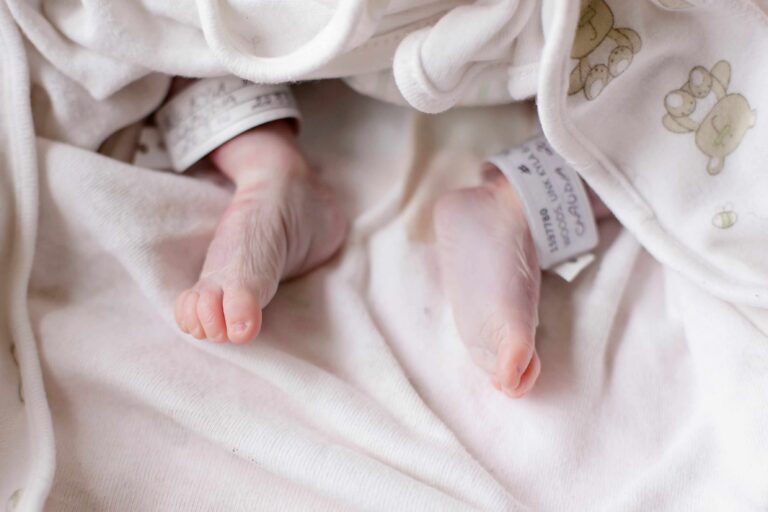or many parents, the period following the death of a child feels like a nightmare—an overwhelming, surreal experience filled with grief and disbelief.
“Why am I bothering with life? How can I go on with my life when my son is dead? A child is so much part of your future that when that child has gone, you are not the same.”
“Nobody knows what they can handle until they have to. If someone had told me that my child was going to die, and that I was going to survive it, I would have said, ‘You are absolutely crazy. I could never handle that.’
When Emergency Services Are Called
When a family member, carer, or bystander calls 000, both local police and ambulance are notified—even if only one service is requested.
Police and Coronial Investigation
When a child dies suddenly or unexpectedly, regardless of age, Australian law requires police to attend and report to the coroner. The coroner then decides whether the child needs to be taken directly to their care. The exact process can vary between States and Territories.
For more information, you can refer to your local resource: The Coroner’s Process – Information for Family and Friends.
“I remember that night when the police came. We roughly had three lots of police interview us. The first lot were uniformed. They arrived fairly quickly after they had pronounced Sian gone.”
“I thought they believed that I had murdered my child. And I just sat there… there was a young guy, who we called the ‘tea boy’, who I thought was straight out of the academy, he went off to make the tea! But the girl, and I still remember her name. It was Alexa. She did nothing, and I mean nothing, to make me feel not guilty. I sat there and thought: How do I make her believe me that I was not…I was on my own when Sian died, and it made me think it was my word against everyone else’s. How do I tell her…I just kept saying over and over and over again ‘I tried, I tried so hard to save her.’”
“I may have felt less guilty if they had assured me it was just procedure. I had no idea that the police would come to our house to photograph everything. And so when they came in and said the police were here to see us, I thought like ‘Oh My God, they are going to lock me up!’ I honestly thought they are going to take me away tonight and lock me up, because they think this was my fault. And that is scary stuff.”
“Another two arrived in plain clothes and this police woman was a much nicer lady. She explained that she had some questions that she needed to ask me and I have since found out from a friend of mine, who is in the police force, that it has all to do with SIDS (Sudden Infant Death Syndrome). They have a questionnaire. She went through a lot of questions and said, ‘I am sorry I have to ask them.’ She was very apologetic and said it was procedure.”
“We were told she would have to be taken to the Children’s Hospital. Rob and I discussed carefully, lovingly, what she should wear and decided upon her pink and blue gypsy dress. We dressed her with all the care and reverence we had been unconsciously storing up for her first day of school or maybe her wedding day, while all the while fighting the thought, ‘None of this matters: she’s dead.’”
(Note: Procedures vary from state to state.)
Spending Time with Your Child After the Investigation
Once the police have completed their investigation, some States allow parents to escort their child to a hospital to spend time with them in a quiet, supportive setting.
If this is an option, you may choose to carry your child from your home to the ambulance, and hold them during the journey.
“At the hospital, I remember looking from Rob, to my father, to the Doctor, to a friend who had joined us: looking for some explanation of the horror that had just occurred. I also remember the beginning of a feeling that continues to this day, a feeling of having my heart wrenched out of my chest.”
During this time, you may wish to take photographs, collect a lock of your baby’s hair, or simply hold them close. These moments can be deeply meaningful, providing treasured memories in the midst of tragedy. Other children in the family may also wish to spend time with their sibling.
“It would have been helpful to be told: here are things you need to think about. You need to think, in your own time, about gathering photos together, in fact, have a checklist where you can say: ‘Cool, I have to do that’.”
“I hadn’t realised the significance of being asked by the nurse, ‘Would you like a lock of your little girl’s hair?’ So many years down the track and I still touch the locket around my neck holding a piece of her hair. I remember and hold her close to my heart. I need that. It is all I have.”
If You Choose to Stay at Home or the Scene
Some parents choose to remain with their child at home or the location of death until the Coroner’s contracted funeral director arrives. In certain situations—especially where a post-mortem is required—you may not be able to hold your child until after it has been completed.
“A booklet needs to be given to parents at the hospital when they leave. You need to be armed with as much knowledge going home as possible. We walked out of there with nothing. Even with the Coroner’s booklet, we were still clueless. It needs to be in a pack of some sort where they say to you: ‘Don’t look at it now, but if you have any questions they are going to be answered in this book’.”
Asking Questions and Seeking Support
It’s important to be able to ask questions during this time. For example, in Victoria, the Coroners Court’s Family and Community Support Service offers assistance and advice at any time. Each State and Territory has its own support services.
“I didn’t know what to ask. I felt stunned. It was invaluable being able to talk to a counsellor who spoke so openly and encouraged me to think of questions I wanted answered now. It is important to look back and have no regrets. You need someone to guide you.”
Key Takeaways
- The sudden and unexpected death of a child involves police and coronial procedures that can feel overwhelming.
- Parents may have the option to spend time with their child after the investigation, either at home or in hospital.
- Creating memories—through photos, keepsakes, or simply holding your child—can provide comfort in years to come.
- Asking questions and seeking professional support is essential to help you navigate this difficult time.
Recommended Reading
1 Same, D. & Bereaved Parents & Red Nose Grief and Loss Services. (2016). Your Child has Died: Some Answers To Your Questions: A Booklet for Bereaved Parents whose Young Child has Died Suddenly and Unexpectedly. Malvern, Vic.: Red Nose Grief and Loss Services.
Red Nose is committed to supporting families navigating the complexities of the loss of a baby or child. To access our specialised bereavement support including: counselling, peer support programs, support groups, and resources tailored to individual needs, click here.

Did you find this helpful?
Good job! Please give your positive feedback
How could we improve this post? Please Help us.


